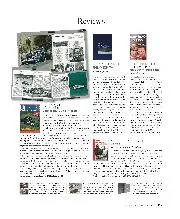
Archie Frazer-Nash
Archie Frazer-Nash ...Engineer Trevor Tarring and Mark Joseland This first biography of a famous name, begun by Joseland and completed by Tarring, tells us that the GN and Frazer Nash…
A MODERN SPORTS/RACING CAR: The Bristol 450
THE new Bristol 450 conpf. which %. on its class in the Reims 12-hour race and finished fifth in general classification has a 2-litre sitt-cylinder in-line engine with overhead valves. The bore is 66 mm. (2.598 in.), the stroke 96 mm. (3.779 in.), capacity 1.971 c.c. (120.3 cu. in.). The chrome-iron cylinder block is fitted ith ” Brivadiurn ” hkh nickel content alloy steel dry-liners. A special a1uminium-allo vlirrdcr heed with centrifugally cast
Austenitic ” alloy stet] iit-erts for valve seats and bronze insert for sparking ping boss is used. Large overhead valves are inclined at 80 deg. and operated by the unique type of push-rod mechanism common to Bristol engines. The extra-large inlet valves are of chromium-nickel steel alloy and the exhaust valves of Special ” Austenitic ” chrome-steel. All valve gear is of strong but ultra light construction, with a high surface-finish and there are highly polished, hemispherical combustion chambers. The eamshaft is mounted on four large pressure-lubricated bearings. The 10-mm. vertical sparking pings have h.t. leads and plug tops shrouded to exclude dampness. Three Solex multiple-jet downdraught carburetters are employed, fitted with efficient but non-restrictive silencers. The A.C. fuel pump is camshaft-operated. Pressed. forged aluminium-alloy pistons, ” diamond turned,” are each fitted with three compression and one. oil control rings. The piston skirts taper and are oval-ground. SpeCial forged-steel connecting rods are used. The massive crankshaft is statically and dynamically balanced and supported on four extra-large main bearings, with all crankshaft journals nitride hardened. The bearings are copperlead, steel-backed strip type. A torsional vibration damper is fitted. Centrifugal pump cooling makes use of extra-large water passages round the exhaust valves. A full-flow oil cleaner is incorporated in the lubrication system, and an extra-large capacity sump assists cooling of the lubricant. The gearbox incorporates four forward speeds and reverse with “
non-crash” synchromesh on top, third and second speeds. Helicaleat gears are used, hardened and ground. All free-running gears are mounted on needle-roller bearings. Ratios are selected by a light and efficient centrally-placed lever. The multi-plate dry clutch is 7i in. in diameter.
Lockheed hydraulic brakes operate through separate mastercylinders for front and rear, with two leading shoes on the front wheels. The brake drums are fully machined all over, with specially. ground friction surfaces of 12 in, diameter and 2/ in. wide. All the drums are scientifically balanced and cooling air is ducted to the front one. The hand-brake operates on the rear only, via rods, and is centrally situated between the seats. The chassis frame is of steel-tube construction and of extra-rigid
section, with four cross-members. A large-capacity, centrally. mounted petrol tank is fitted. independent front suspension,
de Dion rear suspension. rack-and-pinion steering and light-alloy I5-in, wheels with demountable rims feature in the thassis specification. The wheelbase is 8 ft. II in. ; track 4 ft. 3 in. front and rear ; ground clearance 51 in. and turning circle 39 ft. On both locks.
Lucas 12-volt electrical equipment, with eonstant-voltage control and fully ventilated large-capacity dynamo is employed with ignitiofi by Lucas coil or magneto as required. The lamps, so vital in afterdark races, are built-in, long-range Lucas 700s. backed by twin lights and and twin rear lamps incorporating twin stop-lights. Twin large-arc silent windscreen-wipers are operated electrically or manually.
The two-seater aerodynamic Bristol spans saloon body employs a steel-tube structure and light-alloy panelling. The one-piece bonnet is hinged along the rear edge and the spare wheel stowed behind the seats. The instrument-panel carries 5 in. diameter tachometer and ampmeter, oil and water temperature gauge:,, oil pressure gauge, and lighting switches ; there are built-in ventilators. The external oil filler cap shuts magnetically.